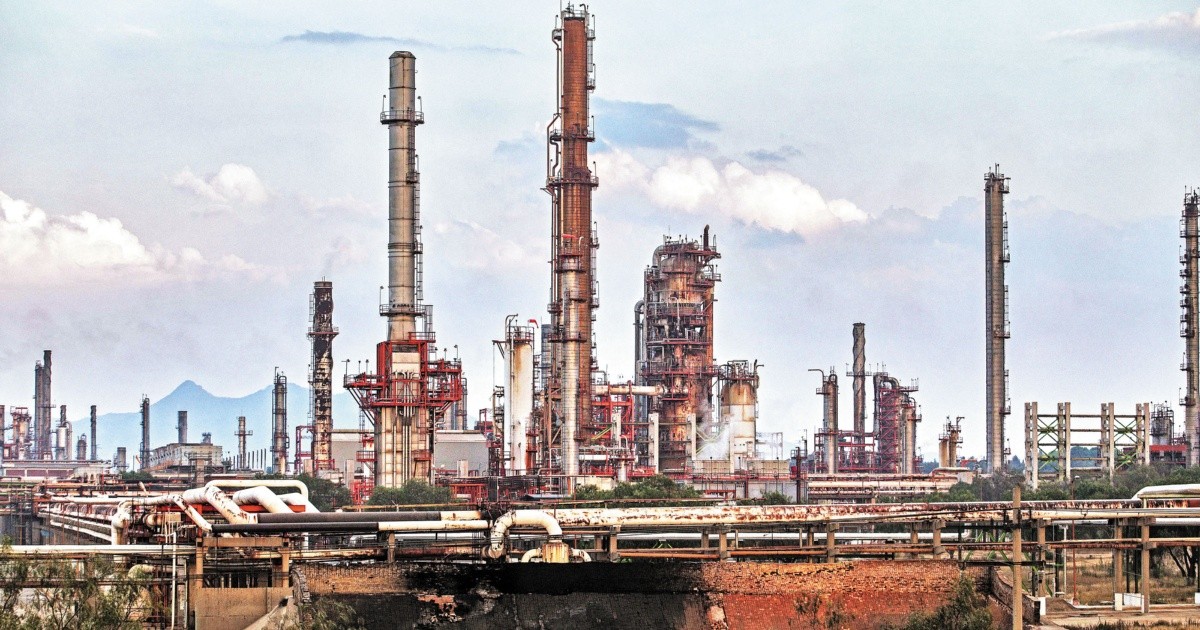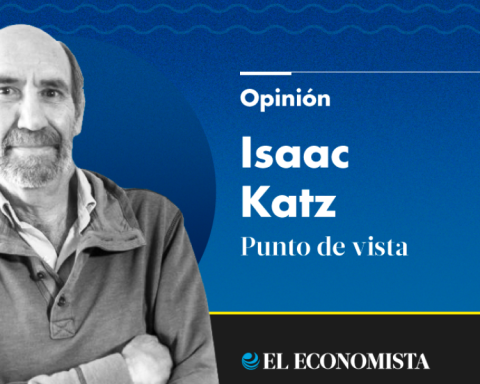Between commercial discounts to attract new wholesale customers that it had lost in the oil marketIn addition to its first negative quarterly margin of the most recent period after 10 years with profits in the refining business and non-stop losses for the subsidiary Transformación Industrial, the strategy of rescuing this business from Petróleos Mexicanos (Pemex) does not seem to be the right one, according to experts, despite the self-sufficiency discourse of the federal government.
Marcial Díaz, business consultant in the Mexican midstream hydrocarbons business at Lexoil Consultores, assured that simply by making a comparison of the refineries that Pemex operates in national territory, in contrast to its other asset, which since this year is the totality of the plant Deer Park in Texasit is 30% more expensive to refine crude oil in the country than to import it, and the explanations are varied.
A refinery with a capacity similar to the one in Deer Park is salina cruzin oaxaca, with a capacity to process 340,000 barrels of crude oil per day. However, this refinery located in the Mexican Pacific has constant operational stoppages and according to Marcial Díaz, in 2021 it stopped for almost half a year.
In addition, it has a workforce of 4,500 workers, while the average of Deer Park It has 850 employees, including base staff and contractors.
“The cost is very high because we are generators of sources of employment, but we are not generators of wealth,” said the specialist.
With this, of the 1.1 million barrels consumed in the country, 75% is imported from both Pemex and private companies. There is no self-sufficiency because it is simply cheaper to import and it has been shown that Pemex cannot do it alone, that its operational and financial capacities are exceeded, that subsidizing fuels for consumers ends up affecting their finances and that it has a union that is too robust that did not even participate in the 2014 negotiations and that will prevent efficiencies from being able to reach the desired self-sufficiency.
It should be remembered that Pemex presented a negative variable margin of 7.37 dollars per barrel in the third quarter of the year, a situation that was not observed in 10 consecutive quarters in which this margin was positive. This margin was 10.69 dollars per barrel lower than that registered in the same quarter of 2021.
At the same time, Pemex highlighted that during the third quarter of 2022 the crude oil process of the National Refining System (SNR) averaged 807,000 barrels per day. This represents an increase of 16% or 112,000 barrels per day compared to the same quarter of 2021. It also implied a use of 49.2% of the capacity of the six refineries together, in contrast to 42.3% last year.
But by subsidiary, Pemex reported earnings at its latest data, as of July 30, 2022, in all items, except in Industrial transformationwhere the loss was 61,722 million pesos, which, although it implies an improvement in relation to the 11,144 million pesos that were reported as a net loss, keeps this subsidiary in the red.
In the quarter, prices showed a downward trend, after the central banks in various countries accelerated interest rate increases in response to high levels of inflation, which increased the prospects related to an economic recession and its effects on the growth of the world demand for oil.
Arturo Carranza, an analyst of the Mexican energy sector, assured that the data shows that refining is a bad business for Pemex. The deterioration of the six refineries that currently operate in national territory prevents the processing of crude oil and the production of fuels from being carried out efficiently.
Meanwhile, the penetration of private companies in the fuel market it has generated a competitive environment to which Pemex was not accustomed. The efficiency of the private sector has caused Pemex to gradually lose market share that, along with crude oil exports, represents the largest source of income for the oil company.
“To face this reality, Pemex has decided to grant commercial discounts to retain its customers. The strategy can be effective in the short term, however, to the extent that the oil company does not show sufficient capacity to reduce operating and logistics costs, it will affect its finances in the medium and long term,” he said.
And regarding the financial health of the company if the goal is maintained, even discursive, that by 2024 it will stop importing fuels, he explained that a reduction in external purchases, in any percentage, would be good news. “It is not so much because it can have a positive impact on Pemex’s finances, but because it strengthens the country’s energy security. Which is not minor, ”he assured.
Finally, he recommended that in order to think about a benefit in the financial health of the company, derived from the reduction in imports, it would be necessary to ensure that this decrease is accompanied by an increase in national production based on efficient processes that do not require substantial investments. in the National Refining System or erratic business strategies.
















